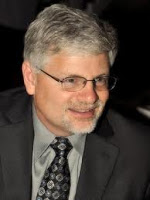Neuroscience

- Day 5 Of Digest Super Week: Meet A Superager
Last year, a group of researchers at the Cognitive Neurology and Alzheimer's Disease Center at Northwestern University reported that they'd identified a small group of elderly people whose brains appeared relatively immune to the physical effects...
- Attention And Distractibility: Placing Science Waaay In The Backseat
A feature article in today's New York Times: Promoting the Car Phone, Despite Risks By MATT RICHTEL The New York Times Published: December 7, 2009 "Industry pioneers have long been aware of the risks of multitasking behind the wheel, but still marketed...
- Multitasking: Cons
If you only do one thing this week … avoid multitasking Often considered the pinnacle of efficiency, multitasking can actually be a negative practice, according to latest research. So stop what else you're doing and concentrate, says Giles Morris...
- Mind Not On The Road?
If you're driving and talking on a cell phone, your mind isn't on the road. Period. And the problem isn't the the physical act of dialing, holding the phone, or listening to the person on the other end. The impairment comes from speaking;...
- Multitasking (switch Ipod On) Is Not (check Email) Efficient (answer Phone)
Perhaps unsurprisingly, it turns out that multitasking is not efficient. Slow Down, Multitaskers; Don’t Read in Traffic, from Sunday's New York Times quotes several recent & forthcoming studies detailing the inefficiencies of multitasking. Some...
Neuroscience
Day 6 of Digest Super Week: Meet the Supertaskers
We study SuperTaskers
 |
| Dr Jason Watson |
My collaborator Dr. David Strayer and I began looking for individual differences in multitasking ability in 2006-2007. We were looking for any attentional control variables that might predict who shows more or less dual-task cost associated with a real-world form of multitasking: use of a mobile phone while driving. In our first 30 subjects tested in this experiment, we were surprised to find one subject who did not show the expected pattern of dual-task costs (i.e. they drove just the same whether using a phone at the same time or not, and vice versa). After ruling out alternative explanations for this subject’s results (e.g., miscoding, sandbagging), we wondered if we might find more individuals who performed this way, and ultimately identified four more out of the original set of 200 subjects that we had tested.
We thought other cognitive scientists might be interested in these 2.5 per cent of individuals (5 out of 200) who violated cognitive theory with regard to limited-capacity attention, began referring to them as the “Supertaskers,” and wrote a paper about them that is now published in the journal Psychonomic Bulletin & Review. We’ve been searching for and studying Supertaskers ever since, having identified over a dozen in the context of our research, while also learning more about what cognitive factor(s) may contribute to their extraordinary multitasking ability.
Digest: How might their multitasking skills affect their everyday lives?
 |
| Dr David Strayer |
As we noted in a recent issue of Scientific American Mind we suspect certain occupations may have a higher percentage of Supertaskers. For example, high-end chefs, ER doctors, fighter pilots, air traffic controllers, or elite NFL quarterbacks may be particularly adept at managing multiple task goals and streams of information, and hence, be more likely to be Supertaskers. Regardless, all else being equal, we would expect the Supertaskers in our midst to rise to the top of their respective professions, particularly when the cognitive demands of their occupation require them to juggle multiple task goals at the same time.
Digest: Could we train ourselves to reach their level of multitasking ability?
Though our Supertaskers were identified based on their behavioral performance in cognitive tasks with which they had little if any prior training, it is a question for future research as to whether it might be possible to train others to reach their level of superior multitasking ability. Our current thinking is that Supertaskers’ level of multitasking ability is indeed innate. However, as we conduct more inter-disciplinary research with Supertaskers, and hopefully gain a greater understanding of what factor(s) might distinguish Supertaskers from the rest of us, it may be possible to use Supertaskers’ overall profile of performance as a guide for designing training regimes to help others be more effective at multitasking.
Digest: What studies of Supertaskers are you planning next?

Most recently, our primary research focus has been to identify what might be unique about Supertaskers: whether in terms of genetics, underlying brain activity/structure, behaviour, or a host of other variables. Our initial brain imaging results have been especially promising, revealing that Supertaskers may be more effective in recruiting key aspects of prefrontal cortex. That is, relative to matched control subjects, the Supertaskers are more efficient, achieving greater levels of behavioural performance in dual-task paradigms with less associated neural activity. Supertaskers keep their brains “cool” under demanding cognitive loads, perhaps making them less susceptible to the behavioural interference that often accompanies multitasking. Notably, such neural efficiency seems to also be associated with expertise in different domains. Our future neuroimaging research is examining both activation of the resting state or default mode network and the integrity of white matter pathways in the brains of Supertaskers, as well as the notion that certain occupations, such as fighter pilots and air traffic controllers, may show similar multitasking ability and patterns of neural efficiency.
--
Drs Jason Watson and David Strayer are at the Department of Psychology & The Brain Institute, University of Utah.
Tomorrow, on the final day of Digest Super Week, we meet a person with hyperthymesia, the ability to remember every day of their life in detail.
- Day 5 Of Digest Super Week: Meet A Superager
Last year, a group of researchers at the Cognitive Neurology and Alzheimer's Disease Center at Northwestern University reported that they'd identified a small group of elderly people whose brains appeared relatively immune to the physical effects...
- Attention And Distractibility: Placing Science Waaay In The Backseat
A feature article in today's New York Times: Promoting the Car Phone, Despite Risks By MATT RICHTEL The New York Times Published: December 7, 2009 "Industry pioneers have long been aware of the risks of multitasking behind the wheel, but still marketed...
- Multitasking: Cons
If you only do one thing this week … avoid multitasking Often considered the pinnacle of efficiency, multitasking can actually be a negative practice, according to latest research. So stop what else you're doing and concentrate, says Giles Morris...
- Mind Not On The Road?
If you're driving and talking on a cell phone, your mind isn't on the road. Period. And the problem isn't the the physical act of dialing, holding the phone, or listening to the person on the other end. The impairment comes from speaking;...
- Multitasking (switch Ipod On) Is Not (check Email) Efficient (answer Phone)
Perhaps unsurprisingly, it turns out that multitasking is not efficient. Slow Down, Multitaskers; Don’t Read in Traffic, from Sunday's New York Times quotes several recent & forthcoming studies detailing the inefficiencies of multitasking. Some...
